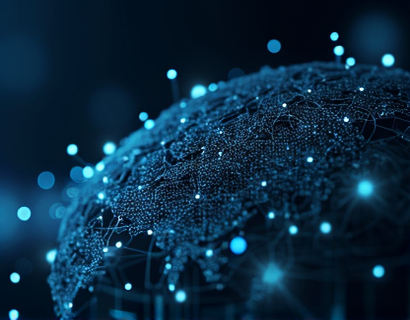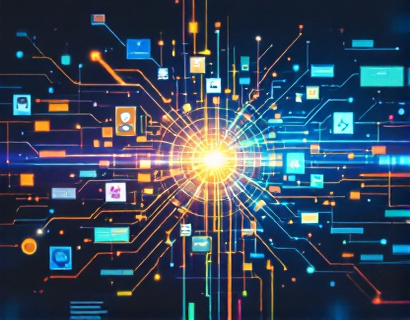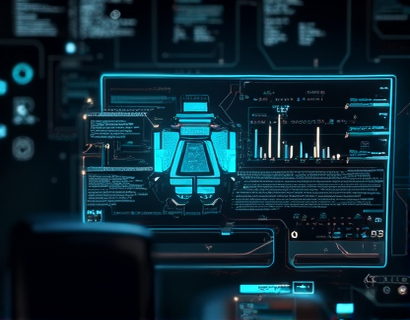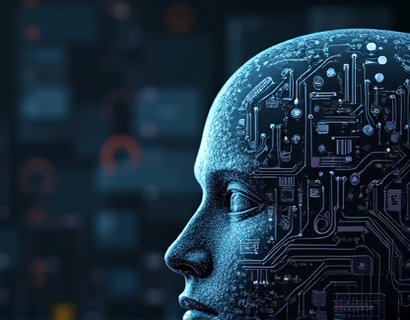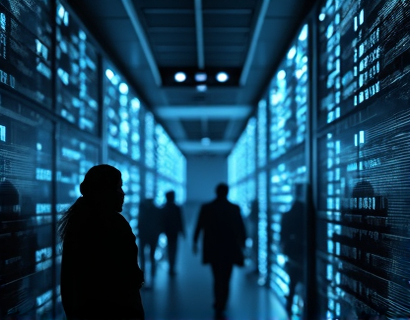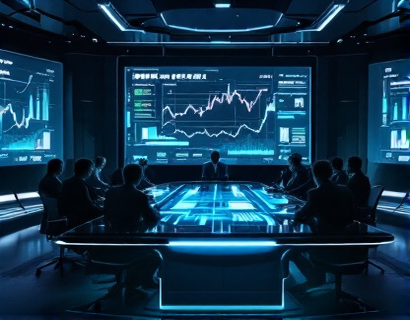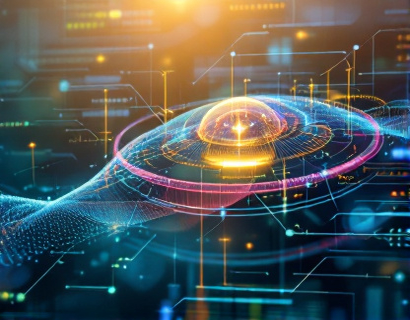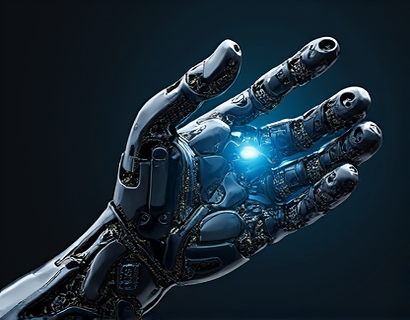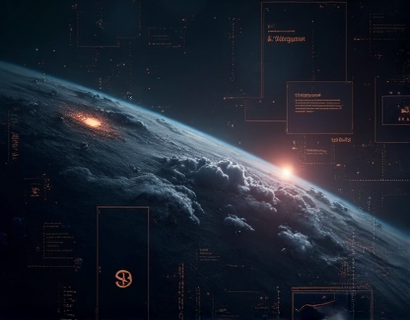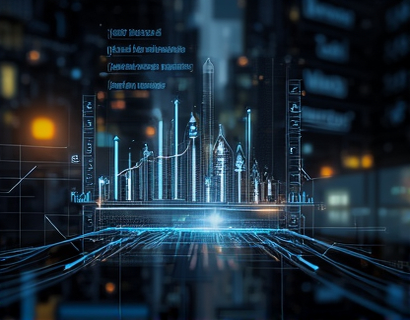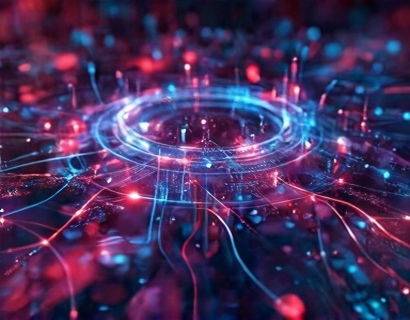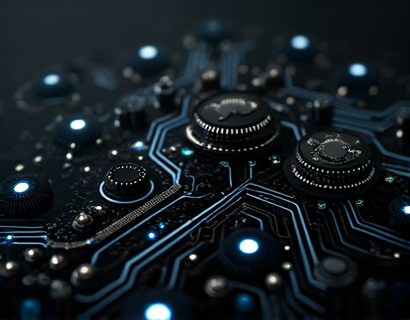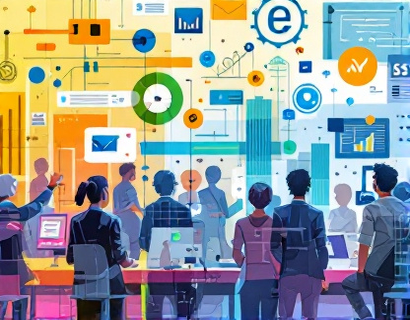Decentralized Productivity Revolution: Harnessing AI and Crypto for Next-Gen Digital Transformation
The digital landscape is undergoing a profound transformation, driven by the convergence of artificial intelligence (AI) and cryptocurrency. This revolution is not just about technological advancements but a paradigm shift in how we approach productivity, collaboration, and task management. The integration of these two powerful forces is giving birth to a new era of decentralized solutions, promising enhanced efficiency and simplified workflows. This article delves into the transformative impact of this merger, offering valuable insights for tech enthusiasts and professionals alike.
The traditional centralized models of productivity and task management are being challenged by decentralized alternatives. These new systems leverage blockchain technology to create transparent, secure, and tamper-proof environments. The decentralized nature ensures that no single entity has control, reducing the risk of data breaches and enhancing user trust. AI, on the other hand, brings intelligence and automation to these systems, optimizing processes and providing insights that were previously unattainable.
Enhanced Productivity Through Decentralization
Decentralization fundamentally changes the way productivity tools are designed and utilized. In a decentralized system, tasks and data are distributed across a network of nodes, rather than being stored in a central server. This distribution not only increases resilience but also improves access and collaboration. Users can interact with applications and services without the need for intermediaries, streamlining workflows and reducing bottlenecks.
One of the key benefits of decentralized productivity tools is their ability to operate independently of central authorities. This means that users have greater control over their data and applications. For instance, a decentralized project management tool can allow team members to update tasks and track progress in real-time, without relying on a central server. This not only speeds up the process but also ensures that everyone has the most up-to-date information.
AI-Driven Optimization in Decentralized Systems
AI plays a crucial role in enhancing the capabilities of decentralized systems. By integrating machine learning algorithms, these systems can learn from user behavior and adapt to optimize performance. For example, an AI-powered decentralized calendar application can analyze a user's scheduling patterns and suggest optimal meeting times, taking into account availability and time zone differences. This level of personalization and intelligence is a significant step forward from traditional calendar tools.
Moreover, AI can automate routine tasks, freeing up users to focus on more strategic activities. In a decentralized environment, AI can manage and coordinate these tasks across the network, ensuring that everything runs smoothly and efficiently. For instance, an AI-driven decentralized content creation platform can automatically assign tasks based on user expertise and availability, streamlining the content production process.
Simplified Task Management and Collaboration
Task management and collaboration are areas where the combination of AI and decentralization shines. Traditional task management tools often suffer from siloed data and lack of real-time updates. Decentralized platforms, enhanced by AI, can overcome these limitations by providing a unified and dynamic workspace. Users can create, assign, and track tasks in a transparent and secure manner, with AI ensuring that the process is as efficient as possible.
Consider a decentralized task management platform that uses AI to prioritize tasks based on urgency and importance. The AI can analyze historical data and user preferences to generate a personalized task list for each user. Additionally, the platform can integrate with other decentralized applications, such as communication tools and document storage, to create a seamless workflow. This integration ensures that all relevant information is accessible in one place, reducing the need for context switching and increasing productivity.
Security and Trust in Decentralized Systems
Security is a paramount concern in any digital transformation, and decentralized systems offer robust solutions. Blockchain technology ensures that data is immutable and transparent, reducing the risk of fraud and unauthorized access. Each transaction or data update is recorded on the blockchain, creating an unalterable audit trail. This level of transparency builds trust among users, as they can verify the integrity of the data and the actions taken within the system.
AI enhances security by detecting and mitigating potential threats in real-time. Machine learning algorithms can identify unusual patterns or anomalies that may indicate a security breach. In a decentralized environment, these algorithms can operate across the network, providing a comprehensive security solution. For example, an AI-powered decentralized identity management system can verify user identities and grant access to applications based on predefined rules, ensuring that only authorized users can perform specific actions.
Case Studies and Real-World Applications
Several projects and platforms are already leveraging the power of AI and decentralization to drive productivity and innovation. One notable example is a decentralized cloud storage service that uses AI to optimize data storage and retrieval. The AI algorithm analyzes usage patterns and dynamically allocates storage resources, ensuring efficient use of bandwidth and reduced costs. Users can access their files from anywhere, with the system automatically handling data synchronization and backup.
Another example is a decentralized marketplace for freelance services, where AI matches clients with the most suitable professionals based on skill sets, availability, and past performance. The platform uses blockchain to securely handle payments and ensure that both parties fulfill their obligations. This not only simplifies the hiring process but also builds a reputation system that rewards high-quality work.
Challenges and Future Prospects
While the potential of AI and decentralization in productivity tools is immense, there are challenges that need to be addressed. One of the primary challenges is scalability. As the number of users and transactions increases, the system must maintain performance without compromising speed or security. Continuous research and development are essential to overcome these technical hurdles.
Another challenge is user adoption. Many professionals are still accustomed to traditional centralized tools and may be hesitant to switch to decentralized alternatives. Education and demonstration of the benefits, such as enhanced security and greater control over data, are crucial in driving adoption. Additionally, user-friendly interfaces and seamless integration with existing workflows can help ease the transition.
Looking ahead, the future of decentralized productivity tools is promising. As more developers and organizations recognize the advantages of this approach, we can expect to see a proliferation of innovative solutions. The integration of AI and decentralization will continue to evolve, leading to more intelligent, efficient, and user-centric applications. The potential for disruption in various industries, from healthcare to finance, is significant, and the next-gen digital transformation is just beginning.
In conclusion, the merger of AI and decentralization is revolutionizing productivity and task management in the digital era. By leveraging the strengths of both technologies, we can create more secure, efficient, and user-friendly tools that empower individuals and organizations to achieve their goals. As this revolution gains momentum, it is essential for tech enthusiasts and professionals to stay informed and embrace these transformative changes.



